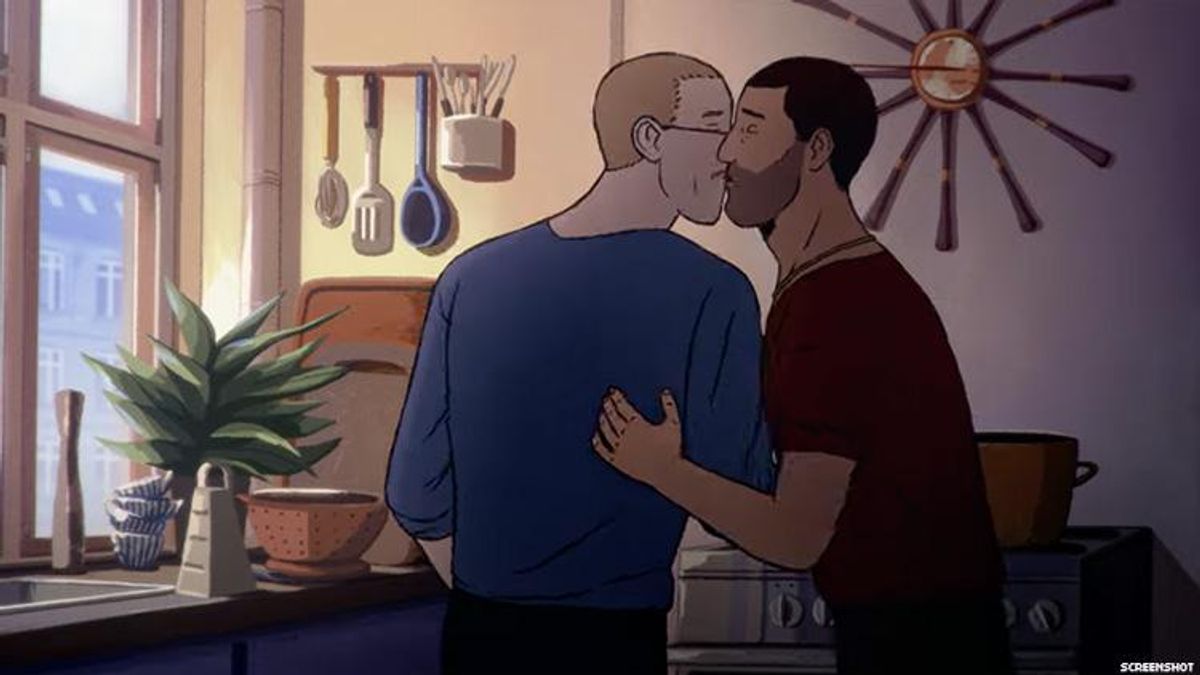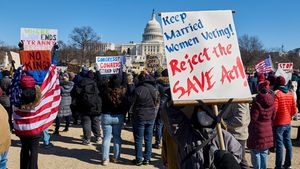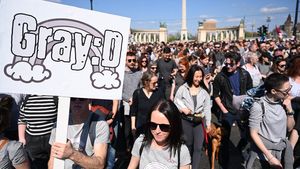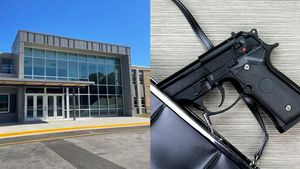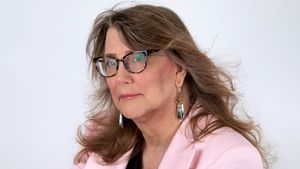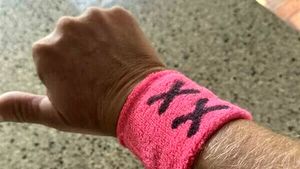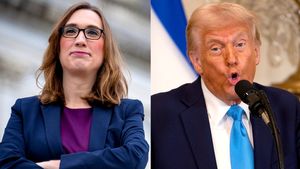This weekend, Flee will close the NewFest, New York's LGBTQ+ film festival, and the film is not one to miss. Directed by Jonah Poher Rasmussen, the production creatively tells the true story of a gay Afghan refugee through intimate interviews and animation, which both protect the identity of its subject, "Amin," and allow for breathtaking visuals in the process.
The result is a moving portrait of a person's heartbreak and resilience as he flees from turmoil in Afghanistan, to Russia, to Denmark as a youth with his family members. And along the way, he comes of age as a gay person. Flee has garnered much attention on the film festival circuit; it won the Grand Jury Prize at Sundance and has garnered Riz Ahmed and Nikolaj Coster-Waldau as executive producers.
Out got the chance to chat with Rasmussen to discuss the making of the film.
Out: As a filmmaker, when did you realize you wanted to tell Amin's story, and why was it important for you to do so?
Jonah Poher Rasmussen: I met Amin when I was 15 and he was 16. He arrived in my sleepy Danish hometown all by himself from Afghanistan. We started meeting every morning at the bus stop going to high school and slowly became very good friends. Already back then, I was interested in knowing how and why he had come. But he didn't want to talk about it, and I of course respected that.
Years passed by, and I started working in radio and at some point --15 to 16 years ago -- I asked him if I could do a radio documentary about his story. He again said no, but also said that he knew that he would have to tell the story at some point, and when he was ready he would like to tell it to me. So I kind of had it in the back of my head all these years.
Then eight years back, I was invited to a workshop here in Denmark called "Anidox" where they gather animators and documentary filmmakers to develop ideas for animated docs. They asked me if I had an idea for one, and I thought that this could maybe be the way to tell Amin's story. I called him up and he said yes. Also because with the animation, we could make him anonymous, which made sharing his story for the very first time a lot easier for him. He didn't want people he met in a professional setting or in public to know about his innermost secrets and traumas from the very beginning, and by making him anonymous through the animation, he kept control and really freed him to be able to share his story.
What were the biggest benefits and drawbacks to telling Amin's story through animation?
It was really the only way to tell his story as before mentioned. Him being anonymous behind the animation. But also we could make the past come back to life. We could make Amin's childhood home come back to life. Afghanistan in the '80s, Moscow in the '90s, and place Amin in the setting. And also Flee is really a story about memory and trauma, and the animation enabled us to support that. With the animation, we could be a lot more expressive than we could have been with a camera. At times when there were things Amin had a hard time talking about or couldn't really remember properly, the animation changes and turns more surreal and dreamy, focusing more on his emotion than being realistic to how things actually looked like.
Which part was the most difficult to tell?
For Amin, it was really talking about his family. Talking about his father's disappearance and the guilt he felt and still feels towards his family who paid dearly to get him to a safe place. He had kept it a secret for so many years, that he actually still had family, so to finally open up about it was a very big deal both for him and me.
What parallels did you find between the refugee and LGBTQ+ experience?
It's kind of a double coming-out story. The film is called Flee and is of course about Amin's physical flight from Afghanistan to Denmark, but it's even more so about how Amin always has had to flee who he is. In his childhood, he couldn't be gay because that wasn't possible in Afghanistan. And when he arrived in Denmark, he couldn't talk about his past, so he has always had to hide parts of his identity. To me, Flee is about finding a place where you can be who you are with everything that entails. Your past, ethnicity, sexuality, etc.
What insights did you learn from his coming-out story?
First of all, how much people can carry around that you don't see from the outside and how important it is to find a place where you can bring all that you carry and be true to who you are. Also, I had the same prejudice as I think most people have about being gay in a Muslim family and even Amin had against his own family. And it was just wonderful to experience that prejudice put to shame.
Amin has an early crush on Jean-Claude Van Damme, and there's an amusing fantasy sequence. How much fun was that to direct?
It was a lot of fun. Both talking to Amin about it and suddenly realizing how we had seen JCVD films in a very different light, but also the process of actually doing the scenes. I have a very long thread of JCVD GIFs with the art director and animation director.
What does it mean to receive such acclaim on the festival circuit, including the Grand Jury Prize at Sundance?
It's just amazing. I mean I had a feeling we had done something special when we finished the film but didn't at all expect the amount of recognition and acclaim we have received so far. One thing is the awards, but seeing the film meet its audience and people taking ownership and reacting to it really means the world to both me and Amin.
How do you hope Amin's story will resonate in the world today?
I hope that Flee will help give a human face to refugees here in the West and to queer people wherever they still aren't accepted.
Watch the trailer for Flee below, and catch the film this Sunday at NewFest as part of the festival's closing night party.
RELATED | NewFest Drops Trailer for 2021 LGBTQ+ Film Festival
